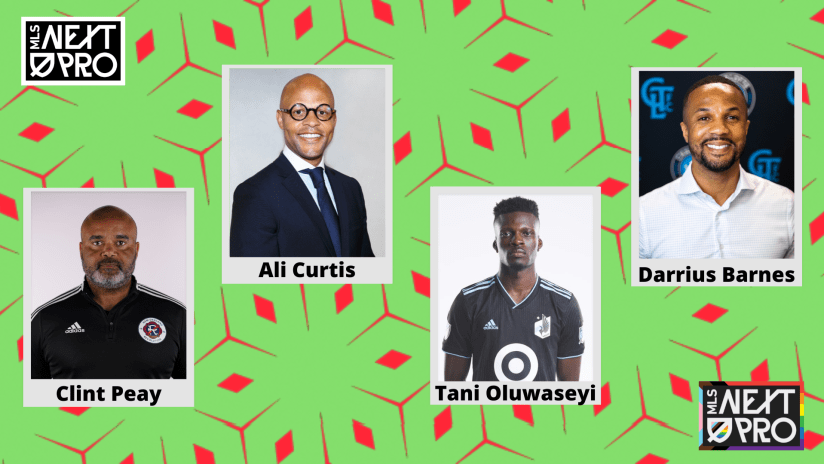Juneteenth celebrates the end of slavery. It is the anniversary of Major General Gordon Granger's travels to Galveston, Texas in 1865 to issue General Order Number 3, which declared all slaves free. Its observance was made into a Federal Holiday when President Joe Biden signed the Juneteenth National Independence Day Act into law on June 17, 2021.
This week MLS NEXT Pro celebrates, remembers and recognizes the history of our country. We remind ourselves of the historical significance of June 19th, the barriers that African-Americans have had to overcome, and how much work is left to be done as we tackle equity and justice for minorities in this country.
Diversity, equity and inclusion is a core pillar of MLS NEXT Pro and with a 25% diversity rate among head coaches and 50% assistant coaches, MLS NEXT Pro is working towards building an inclusive, accepting and loving environment for all persons regardless of race, gender and ethnicity.
Minnesota United 2 forward Tani Oluwaseyi, MLS NEXT Pro Vice-President of Competition and Operations Ali Curtis, New England Revolution II head coach Clint Peay and Charlotte FC's MLS NEXT Pro team President Darrius Barnes spoke with MLSNEXTPro.com about the importance of recognizing Juneteenth, what it’s like being a Black member of the soccer industry in today’s day and age, diversity on the pitch and more.
Tani Oluwaseyi: “Black is excellent… and Black is beautiful”
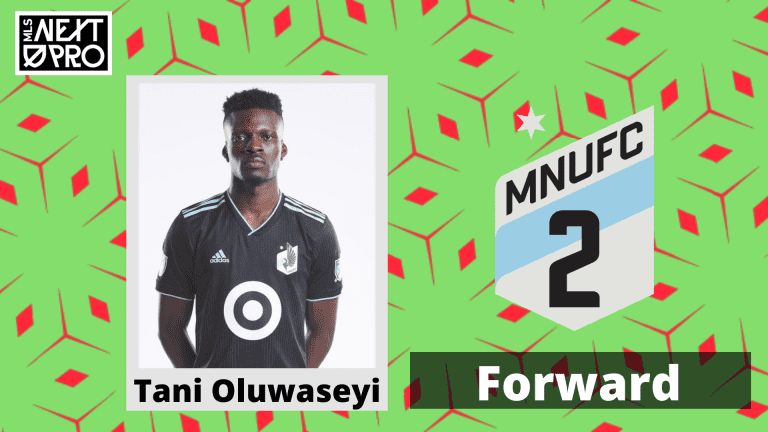
Minnesota United 2 forward, Tani Oluwaseyi, was born in Nigeria, moved to Canada with his family at a young age, played college soccer in New York, and has now found a home with the Loons organization. With his words, Oluwaseyi asks us not to forget, but to embrace our history and learn from our mistakes.
Growing up in Abuja, Nigeria Oluwaseyi saw Black people around him every day. It was normal, it was comfortable and it was home to him. However, he suddenly found himself in Mississauga, Ontario as a child. Being surrounded by people who did not look like him was an immediate culture shock.
“Coming from Nigeria where everyone around you is Black, everything you've experienced is Black. It was definitely that move from Nigeria to Canada, it was definitely difficult not just for me, for my sister, my brother, my entire family, to kind of integrate into a culture and a system where we're always a minority wherever it may be. We're always a minority in school, minority on teams, and it was one of those things where it just kind of took adjusting.”
The adjustment came in the form of adapting to a new way of life and a new way to see the outside world – including skin color, whether it be his own or those around him.
“Growing up in Canada, there was a period where just the general notion that being Black wasn't the coolest thing in the world, being Black was lesser than everyone else, and I'll speak for myself when I say that there was a there was a point in my life where like, I wouldn't say I was embarrassed, but there were times where I'd be like, 'Oh, being Black isn't the greatest.'”
The pain of looking in the mirror and doubting how great you truly are, because of your skin color, was the reality that Oluwaseyi lived with at that time. However, he credits the adults in his life for putting him in truly uncomfortable positions, but at the same time, he was aware of what was going on around him in the world and acknowledges that he was one of the lucky ones.
“I think for me personally, I've been very privileged where I've always been in a good enough situation where I've never had to question whether or not the color of my skin has limited me in any way, shape or form.”
That’s not to say he never felt discomfort though – at any stage of his young life. Recognizing that his skin color meant that eyes were on him and that the way he looked brought attention to him meant that he has found himself on edge wherever he goes.
“All Black people have a defense mechanism that's always up, so we're aware of these things or I'm very aware of how unfair it is – the treatment of Black players or Black people in general. So, in every situation I put myself in, I'm very aware and I try to make it as easy as possible for myself to adapt to that.”
For Oluwaseyi, eliminating the “outside noise” and focusing on himself, on and off the pitch, but knowing the struggles of being Black in the game he so dearly loves exists, and recognizing it is one of the first steps towards addressing them. The latter expression, however, has been an anomaly in the grand scheme of sport in Oluwaseyi’s eyes.
The prejudice and the racism that the Black community has become accustomed to is the reason that the shell exists, according to Oluwaseyi. “So for me, I've seen it from the youth level all the way up to the pros. I've seen it all. It's just a matter of recognizing that it's there but not letting it affect your growth and not letting it affect your play on the field.”
On this Juneteenth, Oluwaseyi wants to stress how important it is that we do not forget and disregard the history of our country. He asks for us to listen, learn, and grow while continuing to address the racial issues that have defined our country for far too long.
“There are certain people in positions of power all over America who are very quick to hush people up when they start speaking about what happened or make it seem like slavery or segregation or these different things didn't happen. But the truth is that it did. It wasn't pretty, it definitely wasn't pretty, but there have been strides made since then. And it's okay to acknowledge those strides while also acknowledging that there's still ways to go and it's also okay to acknowledge that those things did happen,” Oluwaseyi said. “And when we're making rules or legislations or whatever it may be, you need to look back on those things in order to make legislations and make things that make it easier just for everybody to make sure that equality and equity is prevalent in all parts of society.”
He wants to amplify how being Black in this country is “beautiful” and how we, as a society, can still grow and learn from our past mistakes so that future generations are not subject to the pain and struggles that the current and past generations have endured.
“I think the one thing that I've noticed is people like to shy away from history. They like to shy away from the hard conversations, things that you know, make us uncomfortable, but there's no way that anyone is going to grow if you don't have these uncomfortable conversations. That's the only way that change is going to be made. You need to look at the past, you need to see what was done wrong there in order to, you know, make sure that that doesn't happen in the future.”
Representation of Black culture, Black voices, and Black people in the game of soccer is important to the growth of the game in the United States, but for Oluwaseyi, that’s a small target; that’s a small area where we can grow. In the long run, we need an expression of diversity in every facet of the country.
“Juneteenth, what it means to me personally, is just to celebrate Black excellence because at the end of the day, Black is so beautiful and Black is so awesome. And I just think that a day like that… It's just very important because we can acknowledge the beauty of Black people, we can acknowledge the things that we've done in history, we can acknowledge that Black people are here and we're here to stay,” Oluwaseyi said. “We need Black people in government, we need black people in positions of power because if everyone in a position of power – if they can't relate to what people below them are going through – then that just makes it kind of difficult because if there's no one there to speak up for other Black people, there's no one there to make that change, then nothing's going to happen. It's just going to be the same status quo. So I think a day like Juneteenth, to me personally, is just to celebrate Black excellence and just make sure that everyone knows that Black is excellent and Black is beautiful.”
Clint Peay: “It's important to just reflect and understand where we've been before and where we will want to continue to strive and push towards as a nation, as people and for myself as an individual.”
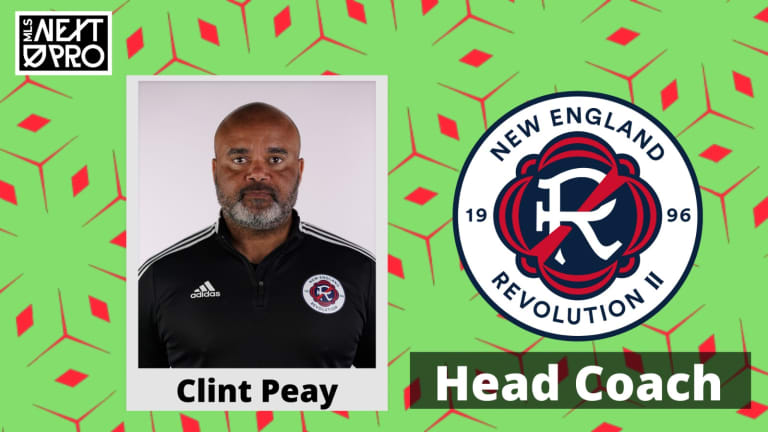
New England Revolution II head coach Clint Peay has seen the American game progress over the past 20+ years from when he played as a professional in Major League Soccer. One of the first Black players to compete in MLS, Peay has seen firsthand the advancements in diversity that soccer has taken in the United States, but he doesn’t forget the struggles that Black players previously endured in the professional game.
“I think early on, obviously there weren't a ton of people of color, specifically African-Americans on the pitch. And I think being one of the first was a tremendous sort of sense of pride to lead the way for others, but I also think that it was interesting growing up because the people that I did play with growing up, were of color,” Peay said.
Growing up in a diverse environment and suddenly participating in a predominantly white league wasn’t as much of a culture shock for Peay as you’d expect, but what stood out was the unintentional treatment that Black players received from technical staff. In the eyes of Peay, an unconscious racial bias was presented towards them due to their uniqueness in physical and on-field attributes relating to athleticism.
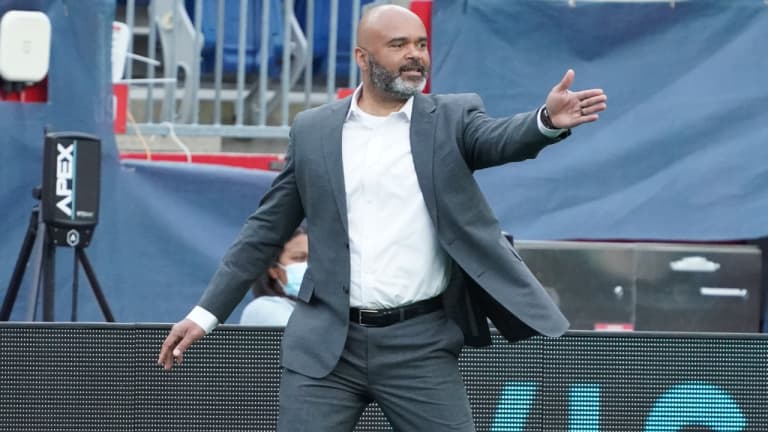
“It seemed as if a lot of these players, eventually because of their athletic qualities, were always sort of pushed towards the backline. And there were some talented players who were attacking players – and I was an attacking the player as a youth – it doesn't mean that we should have all stayed attacking players, but I think that the athletic quality that some of us possessed, was seen as coaches who maybe didn't quite understand our qualities and gifts as attacking players and sometimes, you know, didn't always utilize us the best ways.”
For affected players, it caused tension. It created a relationship that wasn’t necessarily beneficial for both parties, with Black players feeling like they were treated differently than their white teammates.
“Certainly in my own time, there was a few quality guys that I knew grew up and whether they were right or wrong, everyone has their opinion, saw themselves as midfielders forwards, and there was always a sense that someone wanted to move them into a role in the back where they weren’t going to be as comfortable and it often caused tension, I think amongst the player and the coaching staff, that, and at the end of the day it didn't really work out well for the player.”
That unconscious bias existed for years, but in the nearly 27 years that MLS has existed as a league, the progress made has been immense. Present-day, we have conversations about inclusion, we have dedicated projects towards helping minorities and their voices while also sharing a mixing of cultures on and off the pitch. In the eyes of Peay, however, we cannot move forward unless we accept and acknowledge our past.
Moving to the touchline as a coach in 2003, Peay has been working towards being a leader and role model for African-Americans who aspire to be a part of the sporting world throughout his storied career. With many different stops along the way during his journey to the New England Revolution organization, Peay has learned to accept those roles of leadership and embrace the hardships endured along the way.
“I don't necessarily know that I've experienced that same pressure in the roles that I've been given. I think as a coach in general, that there's pressures just associated with the opportunity and the jobs that you get, and I always look at it as not necessarily that I'm under any more or less pressure based on my color, but the fact that I have this role of leadership and I have a job to do that. There are pressures associated with it that I want to make sure that I do the best that I can. So I think more for me and my experience has just been really about doing the best that I can do in the roles that I've been given regardless of the color of my skin.”
On this Juneteenth, Peay asks us to open our eyes, ears and our hearts to acknowledge and accept the issues that still pertain in society when dealing with race. He asks us to “combat challenges” that face us as a country while uniting as one, describing the difficulties that African-Americans have endured in recent years.
Juneteenth as a whole means to recognize history and acknowledge the existing issues for Peay, while asking important questions as to how we can move forward and progress further as a country.
Peay finds today to be a day of “reflection” for him more than everything. “It's important to, to just reflect, understand where we've been before and where we will want to continue to strive and push towards as a nation and as people and for myself as an individual.” As we move forward as a society and as an industry, there’s still room to progress though. There’s still room to recognize that there is more growth to happen, that there are still large, overarching issues, and that equity and justice for all persons regardless of race, ethnicity and gender is still a goal that needs achieving.
“I think at the end of the day, (we need to) continue to bring recognition to some of the social challenges that are going on in society today. It's important for all of us in positions of influence.
"We started with this idea of giving opportunities to people who are qualified and deserve those opportunities to bring something to the table and to allow them to grow and flourish as individuals in important roles.”
Darrius Barnes: “This isn't fiction, but it's reality of the day-in and day-out of what it's like to be a Black professional in today's day and age.”
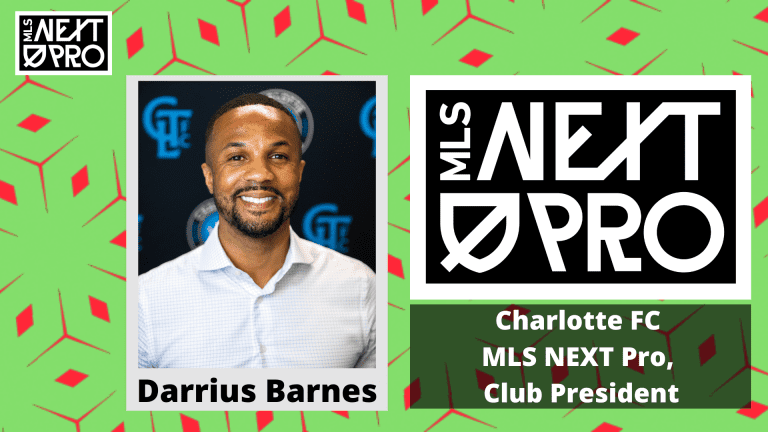
On March 31st, 2022 Darrius Barnes was appointed President of the MLS NEXT Pro team for Charlotte FC, an affiliate side joining the league in 2023. Barnes was hired due to his excellent resume, soccer, mind, and multiple years of employment within the league – both on and off the pitch. However, for Black professionals working, or aspiring to work in sports, it’s never been an easy route to employment in the front office, executive or technical roles. For Barnes, it’s an honor to be in the position he is, but admittedly, he realizes the struggles that other applicants of color endure.
“I think it's certainly been a challenge for Black personnel and Black people to reach positions of power… to reach positions of decision making and to have influence. I think it's taken a lot of knocking at the door, a lot of groundwork to be laid. And a lot of people have said a lot of times, Black individuals or people of color really have to work 10 times as hard to get themselves in positions to even be considered, not just to get the job, but to be considered for executive positions or senior-level positions.”
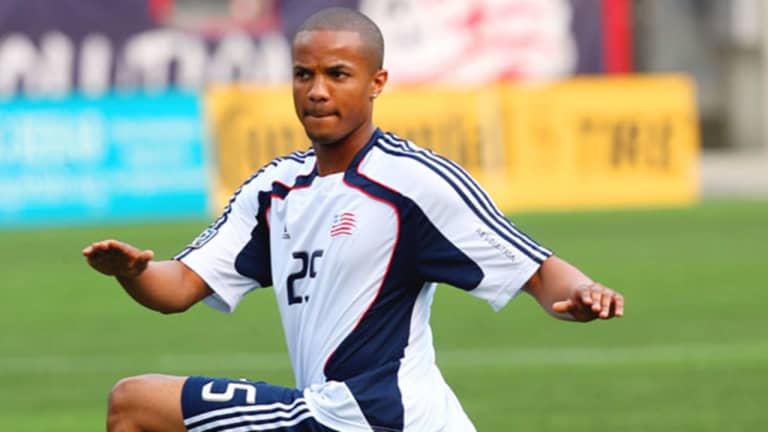
Despite the athletes in question coming from regions all over the world to form a bond as a team and as a family. The reasoning of why that remains has constantly plagued the sporting world, especially in male soccer around the United States. In the eyes of Barnes, success for sporting organizations lies within diversity, expression and representation.
“I think the more that you can diversify talents, no matter what industry or field you are in, I think it's going to produce a better product… And I think you'll see that on the pitch if you get people from all different backgrounds and different profiles of players. When you're looking at it from a tactical standpoint, those are some of the most successful teams – that have diversity in the way that they're able to.”
It’s not just results on the pitch, though. Diversity within an organization – on all levels – allows for different ways of thinking and collaborating while creating a unique and expressive cultural environment. Barnes believes that if an organization truly wants to be representative and diverse, there needs to be a mixing of backgrounds and voices.
“I think that same macho (mentality) can go to the front office of the business and if you put diverse people with diverse backgrounds with diverse experiences into these positions, I think you'll get a new way of thinking… and that will truly allow different decisions and ideas that are brought to the forefront”
From hiring policies, to applicants, all the way to who is in the room when discussing the hiring process, for Barnes, diversity in the room is a must. There needs to be an expression of value towards minority voices in these conversations while also having representation from different cultures.
For Barnes, the reality striking home is that in the year 2022, there are still strides to be made toward creating inclusive environments for minority voices. For him, “this isn’t fiction, it's reality of the day-in and day-out or what it's like to be a Black professional in today's day and age.”
On this Juneteenth, Barnes asks for the general public to learn and to educate themselves about the true meaning of the federal holiday. For him personally, Barnes grew up not knowing what Juneteenth meant, stating that through his educational journey all the way through college, the educational system failed to share the meaning behind it – which, as an adult to look back on, is harrowing.
However, Barnes now sees Juneteenth as an opportunity to embrace history, a way to bring awareness to cultural happenings and a time to celebrate culture and heritage.
“People should understand that it's not a dark day, it's a celebration,” Barnes said. “Lots of groundwork has been done, but it doesn't just stop after 2021 and it being (declared) a national holiday. It's like… how do we celebrate it? How do we program it? How do organizations make sure that their employees get the day off and continue to put content and programming around it so there is more awareness all around?”
Ali Curtis: “Race is a really difficult thing to talk about… diversity, equity and inclusion is a really really difficult thing to talk about, with everyone… with people that are from all different places, all different races, and do it in such a way that it honors what has happened, what is happening and needs to occur. It is not easy.”
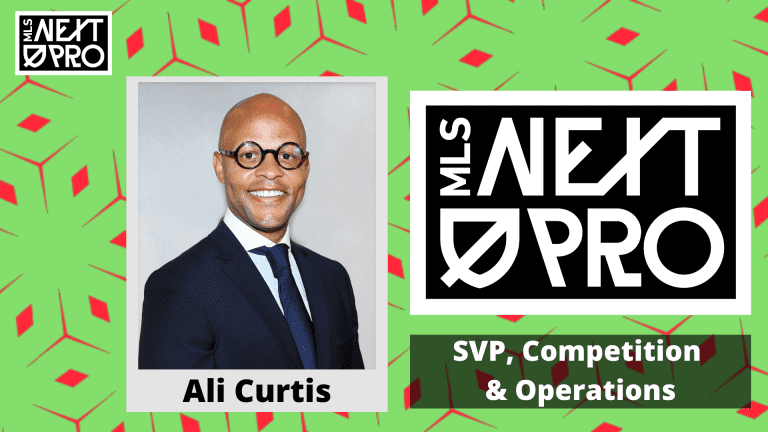
Ali Curtis was announced in 2014 as the first-ever Black GM in Major League Soccer, with Curtis joining the New York Red Bulls organization. 18 years after the league’s founding, they hired their first Black GM. Why did it take so long to diversify that role? Curtis doesn’t know. However, he’s proud to have been the individual that broke that barrier and laid the ground for future applicants of color in those roles. Now, with MLS NEXT Pro, Curtis is on a journey to help establish a league with a core pillar built on diversity, equity and inclusion.
Curtis’ journey was a difficult and challenging practice, with many barriers thrown his way, but he now finds himself atop the ladder and has helped establish a path for minorities in sport.
“I think that sports is often viewed as an even playing field. I think in practice, in some cases, that's true, and in other cases, it's a little bit more challenging. Soccer, at least off the field, is similar to a lot of other areas of the workplace. And it's important that we continue to build programs and to diversify such that our front offices are reflective of what's happening in the game itself, and so sometimes things take time, and I was really excited about the opportunity to join the Red Bulls. I think it was great for me and my family, was great for the sport, and I'm excited to continue to do good work to provide opportunities for people to be involved in sport at all levels.”
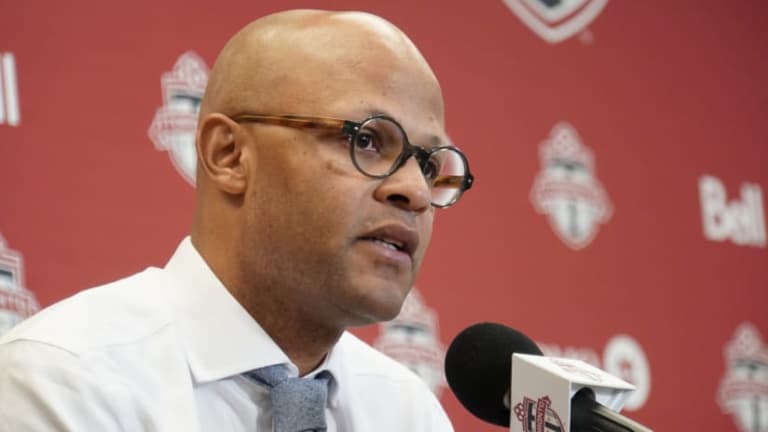
Curtis’ path saw him play college soccer at Duke University and then professionally in MLS. He left the pitch after a short professional stint to pursue his collegiate passion of finance, where he found himself working with the prestigious banking firm JP Morgan from 2004-2007. Then, in 2008, he made his return to the game. However, the journey to establish himself in American soccer culture was then a journey untraveled, with challenges around every corner.
“I think the journey when you look at African-Americans in higher executive roles, you'll see that they have gone through a lot and for me, it was no different. It was very difficult. I did not have the benefit of you know, an uncle or a cousin or whether you know, cronyism or nepotism. But you know, soccer or anything is a team sport, you need help. For me, it was difficult. It was trying to do everything I can to go to the best school possible without growing up with a lot of money. And fortunately, I was able to go to Duke University and to do as well as I could academically as well as on the field.
"And then it's to play and after playing, it's working from one of the top financial institutions in the world in JP Morgan, and then making my way over to the (MLS) league office. And I think you'll find when you look at a lot of the African-Americans that have risen in executive ranks – they've gone through a lot – and I think mine was no different.”
Now, as the Senior Vice President of Competition and Operations with MLS NEXT Pro, Curtis is on a mission to establish an environment where diversity is a key component. “25% of the head coaches in the league being coaches of color is a really, it's a really incredible statistic,” Curtis said. “ And that needs to continue and it will and not just on the sporting side, but also on the business side.”
With MLS NEXT Pro, Curtis has an aim to create an inclusive and accepting environment that other sporting leagues are inspired by. Sports are just the beginning, though. Curtis has intentions to inspire the world – businesses and industries in general – on how to create an environment that truly shows how D.E.I. should and can be implemented.
On this Juneteenth, Curtis wants people to understand that Juneteenth doesn’t mean the same thing for every Black person, but for so many, it means so much.
“At a very core level, it marks an end to the institution of slavery, but there's still a lot of work to be done. I grew up in Michigan, and while I was cognizant of June 19, that’s something that we didn't celebrate in my household or around me, but that culture is changing. That's something that's different now, but now, it's something that's celebrated in my own household, I've got two kids. And so culture is building and changing in a really positive way.” The positive changes that Curtis has seen include Juneteenth being recognized as a federal holiday, as declared by current U.S. president Joe Biden in 2021. However, with change comes difficulty, and the difficulty when dealing with race is the uncomfortable conversations that come about with it.
The tide has turned, and these conversations are becoming more frequent; Curtis is seeing healthy discourse come about, he sees reflection happening in different scenarios. The fact remains, though. It’s not an easy conversation.
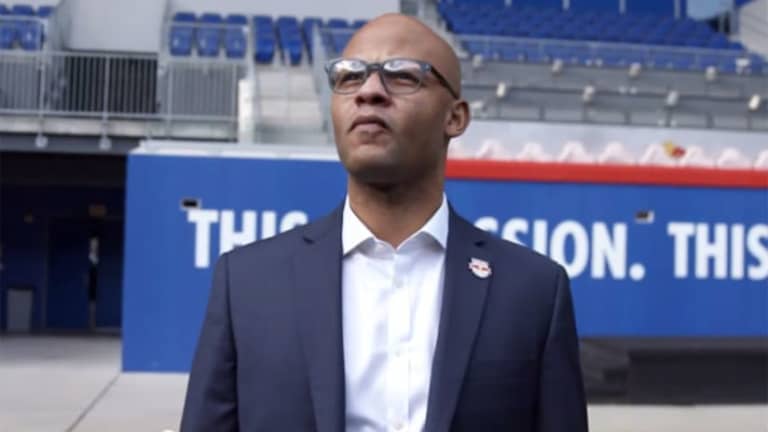
“Change is not easy… talking about race, diversity and inclusion, it’s not easy. It’s a difficult thing, but it has to be met with honest observations and discussion… and those conversations are often met with blood, sweat and tears, but that is the currency of progress. And we have to have these conversations and the fact that when you say something out loud, it breeds accountability. And it provides an atmosphere to have conversations and to talk about something. We all felt, we all saw what happened when George Floyd was murdered, and we see that that silence is what we can't have and progress only happens when there are voices.”
For Curtis, making Juneteenth a federal holiday is an important step in the right direction, but for him, it’s “one of the many milestones” that need to be met as we move towards creating a society built on inclusivity and acceptance. For Curtis “equity and fairness’ are not always the same, and understanding that is a key component to what Juneteenth means to the Black community across the United States.
“There's a lot of opportunity that is in front of us. But, we're having this conversation in 2022. I was the first African-American GM in Major League Soccer at the end of 2014. I never had that conversation then… I think a journalist called me in 2015 or 2016 and we had a small conversation about being Black in Major League Soccer, but there really wasn't much else,” Curtis said. ”You haven't really been able to talk about what it's like to be a Black person in different spaces for a long time and now, this is the first time of my life in the last 2.5 years where I can have these conversations about what it's like to be Black, what my true thoughts are, these conversations that we only have with other Black people, now we're actually being able to have them in spaces of diversity, which I think is really healthy, it's healthy for others and it's healthy for ourselves as Black people.”
Now, in the year 2022, these discussions are becoming more prevalent and important to the growth of who we are as people, but also the growth of the culture we raise this next generation with.
You can learn more about Juneteenth and how Major League Soccer is celebrating it by visiting this link.

